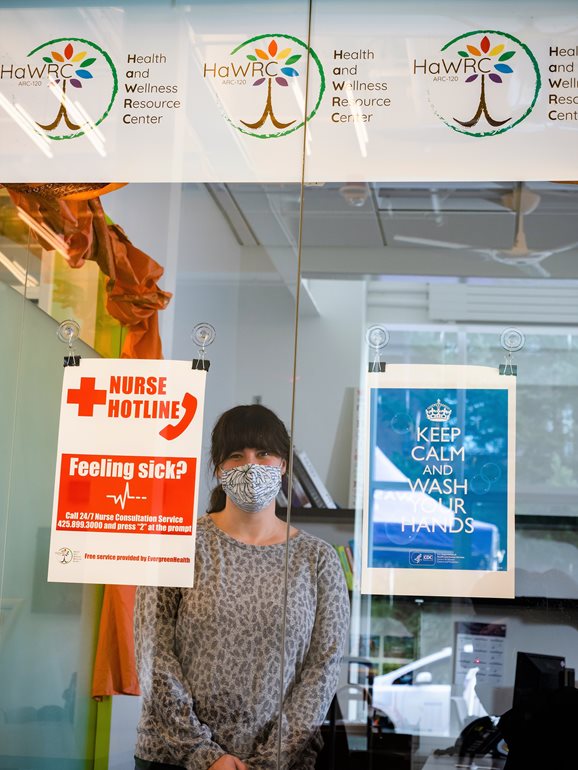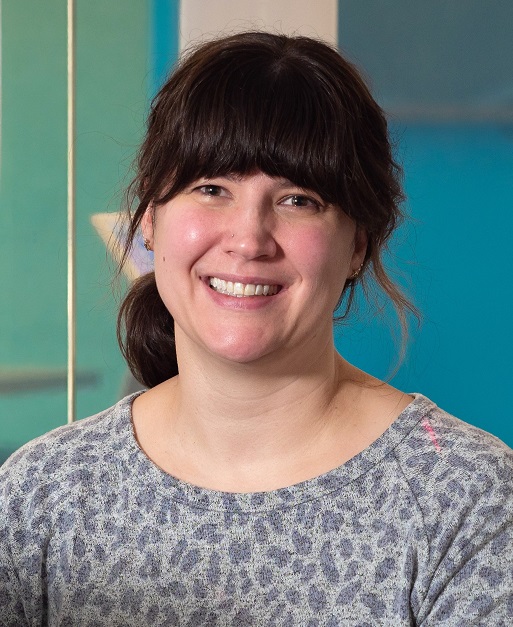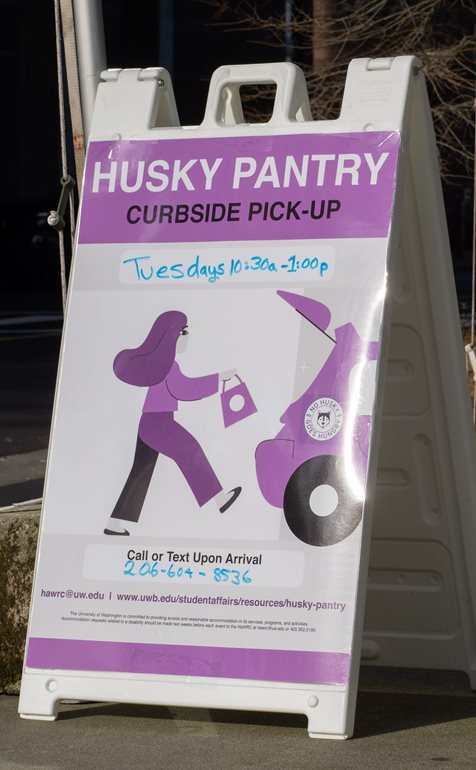
Throughout remote operations during the coronavirus pandemic, the campus Health and Wellness Resource Center has been able to continue providing most of its services to students.
The center is located in the lobby of the Activities & Recreation Center. Like the ARC, it serves students from both the University of Washington Bothell and Cascadia College. Now in its third school year, the HaWRC was created to help students with the parts of their lives outside class that they need to stay in school.
Through the center, students can find resources for physical and mental health, violence prevention, personal budgeting and financial assistance. Students receive one-to-one education and advice from staff coaches, who now mostly connect by phone, email and teleconference because of the pandemic.
“I think we’re able to provide most of the things we provided in person. They just look different,” said Jo Blue, manager. “The partnerships and collaborations we have with folks on and off campus are really what allowed the HaWRC to be able to pivot and continue to serve students the way we have.”
The helpful Hub

A big part of the service is provided through a partnership with the United Way of King County Benefits Hub in the HaWRC. Three Hub workers — Alicia Christian, Ree Robson and Faye Farrales — are serving one-year terms through AmeriCorps. They help students sign up for rental assistance, the federal Supplemental Nutrition Assistance Program and Apple Health, the state health insurance. In addition, Hub coaches can help students apply for emergency funds. Separate funds are available for UW Bothell and Cascadia students.
“We try to make sure we have comparable offerings on both sides,” Blue said.
Co-located in the HaWRC is the Violence Prevention and Advocacy Program. According to Manager Elizabeth Wilmerding, it provides support to UW Bothell students who have experienced sexual and relationship violence.
Emergency funds
When financial problems threaten to force students to drop out of school, coaches can help them apply for help from the Student Emergency Fund. The fund began as a UW Bothell senior class gift in 2016. United Way of King County contributes to the fund as part of the Benefits Hub. UW Bothell’s Division of Advancement & External Affairs launched a campaign for donations to the fund in March in response to the pandemic.
In 2020 the Student Emergency Fund distributed a total of $100,000 to 149 students. By comparison, in 2019 it distributed $39,000 to 52 students, Blue said. The funds are distributed through the CARE team in the Division of Student Affairs.
Free food

The HaWRC also operates the Husky Pantry food bank and coordinates with the Hopelink Mobile Market.
“We try to make sure we have canned fruit and vegetables to be as healthy as we can without perishables,” Blue said.
The pantry is supplied through the nonprofit Hopelink and through food drives, such as one around Thanksgiving that was organized by the Associated Students of the University of Washington Bothell. As a precaution, everything was wiped down and stored for a month and a half before being distributed.
Sexual health
Other than a food bank pickup, about the only students the center staff might see in person are those walking up to the second floor of the ARC to study. After filling out an attestation each day on their health, students are free to sit at distanced tables, which are regularly wiped down with disinfectant.
The ARC restrooms are where students can find sexual health supplies and pamphlets, packed into baggies by HEROs, UW Bothell students in the Health Educators Reaching Out (HEROs) program.
“We filled these baskets mid-fall quarter and said, ‘Well, we’ll see if anyone makes use of them.’ When I went up there, they were totally empty,” Blue said. “We refilled them once or twice, and they were empty again.”
HEROs
This is the second year that the HaWRC has worked with four students in the HEROs program. The peer educators are hired through the Division of Student Affairs. They recently partnered with the Campus Events Board to present “Happy Hour with the HEROs” during which they shared information about substance abuse.
To help connect with new students entering in autumn quarter, HEROs also provided substance abuse education during orientation sessions. Benefits Hub coaches reached out to new students with financial workshops during the Husky Plus orientation sessions, as well.
While the HEROs and HaWRC staff have found ways to connect during remote operations, everyone is looking forward to returning to normal, at least in the next school year, Blue said. “I’m hoping fall quarter will be a fresh new start.”
Students can email hawrc@uw.edu with questions about any of the HaWRC services. Students also can schedule an appointment at https://calendly.com/benefits-hub or contact a Benefits Hub coach directly by calling or texting 425-780-5037.



